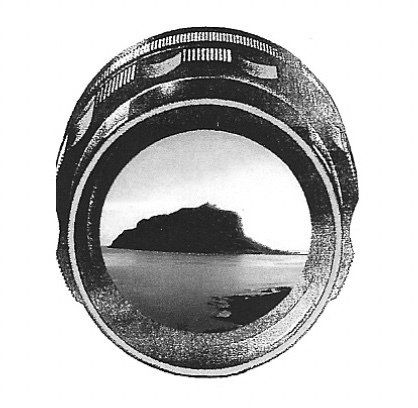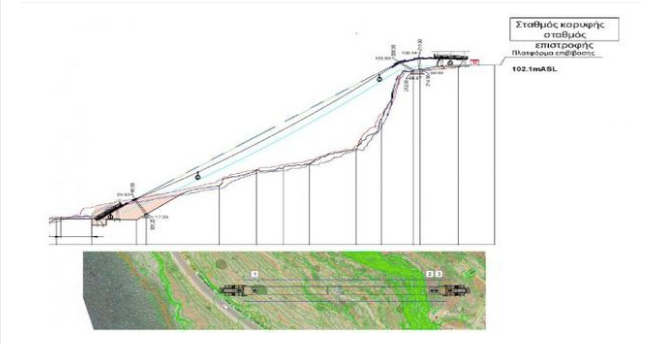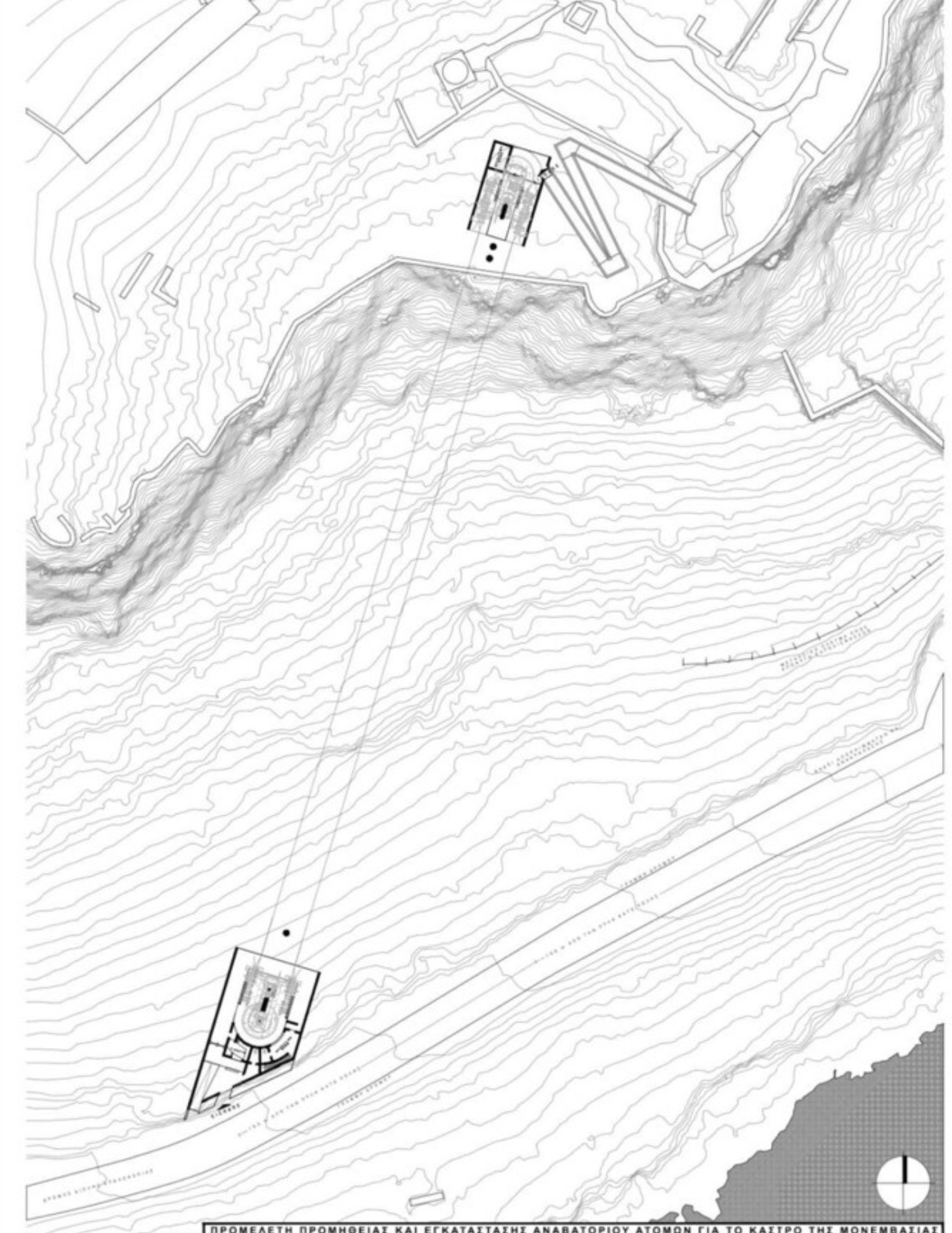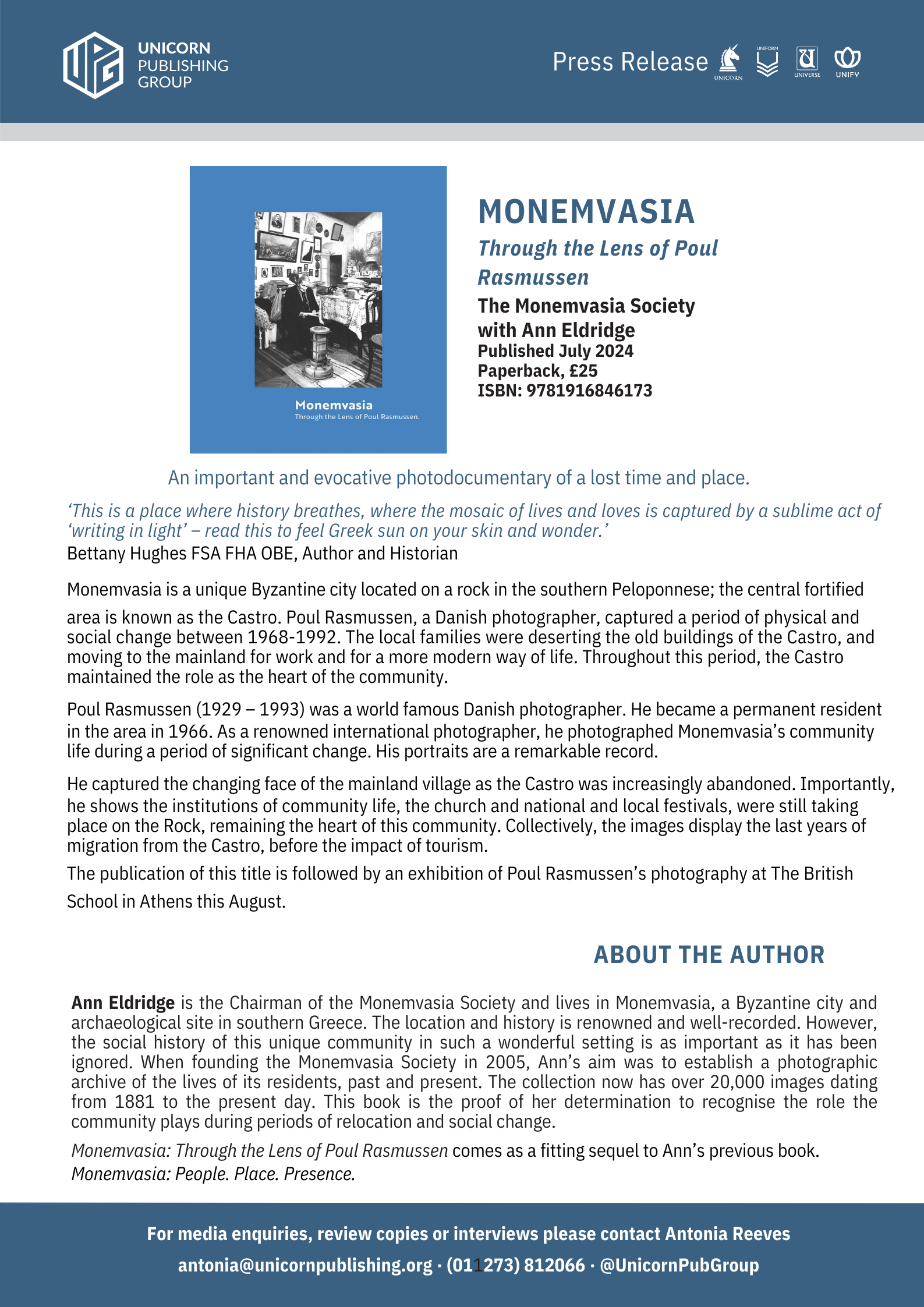The Student Uprising – Athens, November 1973
PH856556 • 1 January 2021
Greece commemorated the 42nd anniversary since the November 17 student uprising at the Polytechnic School of Athens against the military junta that ruled the country from 1967 to 1973.

Greek translation follows.
Starting November 15, 1973 students occupied the Polytechnic School and transmitted a message of resistance against the military junta, through the legendary radio station they set up.
In the early hours of November 17, the regime tanks entered the courtyard of the Polytechnic School, bringing down its steel gate. The clashes between the students and the army and police forces resulted to at least 24 dead and more than a thousand injured. But the revolt and its tragic epilogue untangled the events that finally led to the fall of the colonels’ regime, and became a point of reference for Modern Greek history.
Renowned Greek poet, left-wing activist and active member of the Greek Resistance during WWII, Yannis Ritsos, wrote the poem “The boy and the door” (“Το αγόρι και η πόρτα“), in honor of the Polytechnic School uprising and the young people who died there, defending justice and democracy.
The Boy and the Door
Where he fell
There is a red lake
a red tree,
a red bird.
It stood up
the demolished door-
thousands of horses.
The people rode.
Komninos! – we screamed.
He turned back and looked at us.
He was wearing neither a bandage
nor a wreath.
White horses, red horses
and black, blacker-
gallop, – history
To be on time.
‘This is the Polytechnic... This is the Polytechnic... This is the station of the free fighting students, this is the station of the free fighting Greeks... People of Greece, you are hearing the truth now... We are unarmed. Our only weapon is our faith in freedom.’
Those were the words heard on the radio transmissions of the students of the Polytechnic School of Athens on the 17th of November 1973, a little before the tanks brought down the campus steel gate.
It was four days before, that the students had occupied the Polytechnic School, to show their opposition to the military regime that had been governing Greece for over 6 years. Even though public demonstrations were not allowed, the protest of the students soon turned into popular uprising, with people from all over Athens gathering to take part. When it was made clear that the intervention of the police was not enough, the army was called forth to repress the protesting people.
It was four days before, that the students had occupied the Polytechnic School, to show their opposition to the military regime that had been governing Greece for over 6 years. Even though public demonstrations were not allowed, the protest of the students soon turned into popular uprising, with people from all over Athens gathering to take part. When it was made clear that the intervention of the police was not enough, the army was called forth to repress the protesting people.
At 3 in the morning, while the national anthem was being recited from the Polytechnic radio, a tank was crashing into the gate.
The student uprising was forcefully put down but this was the beginning of the end for the junta.
The fall of dictatorship came the next year but November 17 is the symbol not only of junta’s demise but also of the continuous fight of the Greek people for freedom and their resistance to all forms of tyranny.
Dimitris Francesco aka Matsolas is a resident of Monemvasia and was involved in the Student Protest in November of 1973. He had this to say about The Uprising:
‘Ο αγώνας για Ελευθερία, Δημοκρατία, Κοινωνική δικαιοσύνη, Πρόοδο, Ειρήνη, Ευημερία είναι χρέος της κάθε πολιτικής γενιάς, ο αγώνας για βελτίωση των συνθηκών της ζωής του είναι η ιστορία του ανθρώπου, είναι η προσπάθεια του ,η αγωνία του , να οικοδομήσει ένα κόσμο πολιτισμένο.’
‘The struggle for Freedom, Democracy, Social Justice, Progress, Peace, Prosperity is the duty of every political generation; the struggle to improve the conditions of life is the story of humankind. It is its effort, its anguish, to build a more civilised world.’
Greek translation:
Ο Ρίτσος και η μαθητική εξέγερση
Κέντρο Αθήνας
Χθες, η Ελλάδα γιόρτασε την μνήμη της 42ης επετείου από την φοιτητική εξέγερση της 17ης Νοεμβρίου στο Πολυτεχνείο της Αθήνας ενάντια στην στρατιωτική δικτατορία που κυβερνούσε την χώρα από το 1967 έως το 1973. Αρχίζοντας στις 15 Νοεμβρίου 1973 φοιτητές και σπουδαστές κατέλαβαν την Πολυτεχνική Σχολή και μετέδωσαν το μήνυμα της αντίστασης ενάντια στην χούντα από το θρυλικό ραδιοσταθμό που έστησαν.
Τις πρώτες πρωινές ώρες της 17ης Νοεμβρίου, τα τανκς του καθεστώτος εισέβαλαν στον περίβολο του Πολυτεχνείου, ρίχνοντας την ατσαλένια πύλη. Οι συγκρούσεις μεταξύ διαδηλωτών και των στρατιωτικών και αστυνομικών δυνάμεων κατέληξαν σε τουλάχιστον 24 νεκρούς και πάνω από χίλιους τραυματίες. Αλλά η εξέγερση και ο τραγικός της επίλογος οδήγησαν σε μια σειρά από γεγονότα που κατέληξαν στην πτώση της χούντας των συνταγματαρχών, κα έγιναν σημείο αναφοράς για την σύγχρονη ελληνική ιστορία.
Ο Γιάννης Ρίτσος, αναγνωρισμένος Έλληνας ποιητής, αριστερός ακτιβιστής και ενεργό μέλος της Αντίστασης κατά την διάρκεια του Β’ Παγκοσμίου Πολέμου, έγραψε το ποίημα ‘Το αγόρι και η πόρτα, προς τιμήν της εξέγερσης του Πολυτεχνείου και των νέων ανθρώπων που πέθαναν στη διάρκειά της, υπερασπιζόμενοι την δικαιοσύνη και την δημοκρατία.
Το αγόρι και η πόρτα
Εκεί που έπεσε
είναι μια κόκκινη λίμνη,
ένα κόκκινο δέντρο,
ένα κόκκινο πουλί.
Σηκώθηκε όρθια
η πεσμένη καγκελόπορτα-
χιλιάδες άλογα.
Λαός καβαλίκεψε.
Κομνηνέ! - φωνάξαμε.
Γύρισε και μας κοίταξε
δε φορούσε επίδεσμο
ούτε στεφάνι.
Άσπρα άλογα, κόκκινα άλογα
και μαύρα, πιο μαύρα-
καλπασμός, - η ιστορία
Να προφτάσουμε.
‘Εδώ Πολυτεχνείο... Εδώ Πολυτεχνείο... Σας μιλά ο σταθμός των ελεύθερων αγωνιζόμενων μαθητών, ο σταθμός των ελεύθερων αγωνιζόμενων Ελλήνων... Ελληνικέ λαέ, αυτή τη στιγμή μαθαίνεις την αλήθεια... Είμαστε άοπλοι. Το μόνο μας όπλο είναι η πίστη μας για την ελευθερία.’
Αυτά τα λόγια ακούγονταν στις ραδιοφωνικές εκπομπές των φοιτητών του Πολυτεχνείου της Αθήνας στις 17 Νοεμβρίου 1973, λίγο πριν τα τανκς γκρεμίσουν την ατσάλινη πόρτα.
Τέσσερις μέρες πριν, οι φοιτητές είχαν καταλάβει την Πολυτεχνική Σχολή, προκειμένου να δείξουν την αντίθεσή τους στο στρατιωτικό καθεστώς που κυβερνούσε την Ελλάδα για πάνω από 6 χρόνια. Παρόλο που οι διαδηλώσεις δεν επιτρέπονταν, η διαμαρτυρία των φοιτητών σύντομα μετατράπηκε σε λαϊκή εξέγερση, με ανθρώπους από όλη την Αθήνα να συγκεντρώνονται για να λάβουν μέρος. Όταν έγινε σαφές ότι η επέμβαση της αστυνομίας δεν ήταν αρκετή, ο στρατός επιστρατεύτηκε για να καταστείλει την διαμαρτυρία.
Στις 3 το πρωί, ενώ ο εθνικός ύμνος απαγγελλόταν από το ραδιόφωνο του Πολυτεχνείου, ένα τανκ έριχνε την πύλη. Η εξέγερση των φοιτητών κατεστάλη βιαία αλλά υπήρξε η αρχή του τέλους της χούντας.
Η πτώση της δικτατορίας ήρθε τον επόμενο χρόνο, όμως η 17η Νοεμβρίου είναι το σύμβολο όχι μόνο του τέλους της δικτατορίας αλλά και του συνεχούς αγώνα των Ελλήνων για ελευθερία και της αντίστασής τους σε κάθε μορφής τυραννία.
Where he fell
There is a red lake
a red tree,
a red bird.
It stood up
the demolished door-
thousands of horses.
The people rode.
Komninos! – we screamed.
He turned back and looked at us.
He was wearing neither a bandage
nor a wreath.
White horses, red horses
and black, blacker-
gallop, – history
To be on time.
‘This is the Polytechnic... This is the Polytechnic... This is the station of the free fighting students, this is the station of the free fighting Greeks... People of Greece, you are hearing the truth now... We are unarmed. Our only weapon is our faith in freedom.’
Those were the words heard on the radio transmissions of the students of the Polytechnic School of Athens on the 17th of November 1973, a little before the tanks brought down the campus steel gate.
It was four days before, that the students had occupied the Polytechnic School, to show their opposition to the military regime that had been governing Greece for over 6 years. Even though public demonstrations were not allowed, the protest of the students soon turned into popular uprising, with people from all over Athens gathering to take part. When it was made clear that the intervention of the police was not enough, the army was called forth to repress the protesting people.
It was four days before, that the students had occupied the Polytechnic School, to show their opposition to the military regime that had been governing Greece for over 6 years. Even though public demonstrations were not allowed, the protest of the students soon turned into popular uprising, with people from all over Athens gathering to take part. When it was made clear that the intervention of the police was not enough, the army was called forth to repress the protesting people.
At 3 in the morning, while the national anthem was being recited from the Polytechnic radio, a tank was crashing into the gate.
The student uprising was forcefully put down but this was the beginning of the end for the junta.
The fall of dictatorship came the next year but November 17 is the symbol not only of junta’s demise but also of the continuous fight of the Greek people for freedom and their resistance to all forms of tyranny.
Dimitris Francesco aka Matsolas is a resident of Monemvasia and was involved in the Student Protest in November of 1973. He had this to say about The Uprising:
‘Ο αγώνας για Ελευθερία, Δημοκρατία, Κοινωνική δικαιοσύνη, Πρόοδο, Ειρήνη, Ευημερία είναι χρέος της κάθε πολιτικής γενιάς, ο αγώνας για βελτίωση των συνθηκών της ζωής του είναι η ιστορία του ανθρώπου, είναι η προσπάθεια του ,η αγωνία του , να οικοδομήσει ένα κόσμο πολιτισμένο.’
‘The struggle for Freedom, Democracy, Social Justice, Progress, Peace, Prosperity is the duty of every political generation; the struggle to improve the conditions of life is the story of humankind. It is its effort, its anguish, to build a more civilised world.’
Greek translation:
Ο Ρίτσος και η μαθητική εξέγερση
Κέντρο Αθήνας
Χθες, η Ελλάδα γιόρτασε την μνήμη της 42ης επετείου από την φοιτητική εξέγερση της 17ης Νοεμβρίου στο Πολυτεχνείο της Αθήνας ενάντια στην στρατιωτική δικτατορία που κυβερνούσε την χώρα από το 1967 έως το 1973. Αρχίζοντας στις 15 Νοεμβρίου 1973 φοιτητές και σπουδαστές κατέλαβαν την Πολυτεχνική Σχολή και μετέδωσαν το μήνυμα της αντίστασης ενάντια στην χούντα από το θρυλικό ραδιοσταθμό που έστησαν.
Τις πρώτες πρωινές ώρες της 17ης Νοεμβρίου, τα τανκς του καθεστώτος εισέβαλαν στον περίβολο του Πολυτεχνείου, ρίχνοντας την ατσαλένια πύλη. Οι συγκρούσεις μεταξύ διαδηλωτών και των στρατιωτικών και αστυνομικών δυνάμεων κατέληξαν σε τουλάχιστον 24 νεκρούς και πάνω από χίλιους τραυματίες. Αλλά η εξέγερση και ο τραγικός της επίλογος οδήγησαν σε μια σειρά από γεγονότα που κατέληξαν στην πτώση της χούντας των συνταγματαρχών, κα έγιναν σημείο αναφοράς για την σύγχρονη ελληνική ιστορία.
Ο Γιάννης Ρίτσος, αναγνωρισμένος Έλληνας ποιητής, αριστερός ακτιβιστής και ενεργό μέλος της Αντίστασης κατά την διάρκεια του Β’ Παγκοσμίου Πολέμου, έγραψε το ποίημα ‘Το αγόρι και η πόρτα, προς τιμήν της εξέγερσης του Πολυτεχνείου και των νέων ανθρώπων που πέθαναν στη διάρκειά της, υπερασπιζόμενοι την δικαιοσύνη και την δημοκρατία.
Το αγόρι και η πόρτα
Εκεί που έπεσε
είναι μια κόκκινη λίμνη,
ένα κόκκινο δέντρο,
ένα κόκκινο πουλί.
Σηκώθηκε όρθια
η πεσμένη καγκελόπορτα-
χιλιάδες άλογα.
Λαός καβαλίκεψε.
Κομνηνέ! - φωνάξαμε.
Γύρισε και μας κοίταξε
δε φορούσε επίδεσμο
ούτε στεφάνι.
Άσπρα άλογα, κόκκινα άλογα
και μαύρα, πιο μαύρα-
καλπασμός, - η ιστορία
Να προφτάσουμε.
‘Εδώ Πολυτεχνείο... Εδώ Πολυτεχνείο... Σας μιλά ο σταθμός των ελεύθερων αγωνιζόμενων μαθητών, ο σταθμός των ελεύθερων αγωνιζόμενων Ελλήνων... Ελληνικέ λαέ, αυτή τη στιγμή μαθαίνεις την αλήθεια... Είμαστε άοπλοι. Το μόνο μας όπλο είναι η πίστη μας για την ελευθερία.’
Αυτά τα λόγια ακούγονταν στις ραδιοφωνικές εκπομπές των φοιτητών του Πολυτεχνείου της Αθήνας στις 17 Νοεμβρίου 1973, λίγο πριν τα τανκς γκρεμίσουν την ατσάλινη πόρτα.
Τέσσερις μέρες πριν, οι φοιτητές είχαν καταλάβει την Πολυτεχνική Σχολή, προκειμένου να δείξουν την αντίθεσή τους στο στρατιωτικό καθεστώς που κυβερνούσε την Ελλάδα για πάνω από 6 χρόνια. Παρόλο που οι διαδηλώσεις δεν επιτρέπονταν, η διαμαρτυρία των φοιτητών σύντομα μετατράπηκε σε λαϊκή εξέγερση, με ανθρώπους από όλη την Αθήνα να συγκεντρώνονται για να λάβουν μέρος. Όταν έγινε σαφές ότι η επέμβαση της αστυνομίας δεν ήταν αρκετή, ο στρατός επιστρατεύτηκε για να καταστείλει την διαμαρτυρία.
Στις 3 το πρωί, ενώ ο εθνικός ύμνος απαγγελλόταν από το ραδιόφωνο του Πολυτεχνείου, ένα τανκ έριχνε την πύλη. Η εξέγερση των φοιτητών κατεστάλη βιαία αλλά υπήρξε η αρχή του τέλους της χούντας.
Η πτώση της δικτατορίας ήρθε τον επόμενο χρόνο, όμως η 17η Νοεμβρίου είναι το σύμβολο όχι μόνο του τέλους της δικτατορίας αλλά και του συνεχούς αγώνα των Ελλήνων για ελευθερία και της αντίστασής τους σε κάθε μορφής τυραννία.




